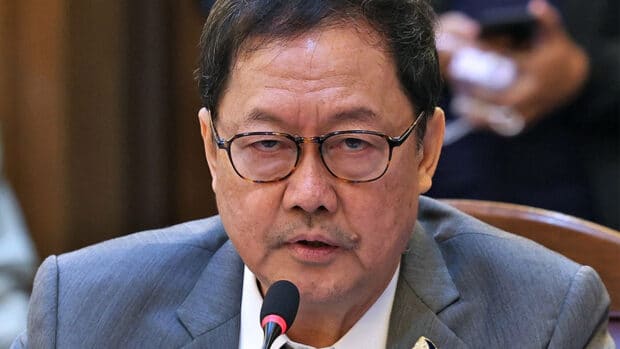SolGen: Gov’t will not stand in way of ICC probe

MANILA, Philippines — Despite the Philippines’ complete disengagement from the International Criminal Court (ICC) in 2019, Solicitor General Menardo Guevarra on Tuesday said the government would not stand in the way of the prosecutor’s investigation of the Duterte administration’s bloody drug war.
“[The Philippines] has no legal duty to lend any assistance to the ICC prosecutor in conducting his investigation. But the Philippine government cannot stop him from proceeding any way he wants,” Guevarra told reporters.
READ: Dela Rosa, 4 others now suspects in ICC ‘drug war’ case – Trillanes
The ICC’s prosecutor’s office, led by Karim Khan, is looking into the alleged “crimes against humanity” perpetrated during the ruthless campaign against illegal drugs waged by former President Rodrigo Duterte.
The ICC has maintained that its inquiry is “within the jurisdiction of the court” from Nov. 1, 2011, to March 16, 2019, or when the country was still a member of the international tribunal.
Guevarra confirmed that the ICC prosecutor sought assistance from the government earlier this month to interview former and current high-ranking police officers allegedly involved in the deaths of thousands of people in what was then known as “Oplan Tokhang.”
He said the Hague-based tribunal could interview persons of interest via online platforms, phone, email, or in person, provided they have consented.
“But the ICC prosecutor cannot expect that the Philippine government will facilitate it for him,” he pointed out.
Eventually cooperate
The solicitor general issued the statement after former Sen. Antonio Trillanes IV shared a confidential ICC document tagging former Philippine National Police chief and now Sen. Ronald dela Rosa and four other retired and current police officers who had “concrete involvement” in the systematic killings in the implementation of the antidrug campaign.
The others named by the ICC prosecutor’s office were retired PNP chief Oscar Albayalde, former Criminal Investigation and Detection Group chief Romeo Caramat Jr., former National Police Commission chief Edilberto Leonardo, and former PNP chief intelligence officer Eleazar Mata.
Guevarra clarified that these five individuals were “not accused” but “under suspicion.”
He added that his office already submitted its recommendation to Malacañang regarding the ICC’s recent request, but gave no further details.
Reacting to Guevarra’s statement, Trillanes said he believed the Marcos administration would eventually cooperate with the ICC.
“President Marcos will say what he needs to say, but when the time comes, he will do what he needs to do,” Trillanes said in a message to the Inquirer.
No jurisdiction
Marcos said in January that his administration would not lift a finger to aid the ICC probe into the drug war, since the tribunal’s action was a “threat” to the country’s sovereignty.
The President also said in April that the Philippines would not hand Duterte over to the ICC.
On May 8, the Department of Justice disclosed that it was working on a legal brief that would lay down “all the legal options” for the President regarding any arrest warrants that may be issued by the ICC, including the Philippines’ possible return to the jurisdiction of the Rome Statute, the 2002 treaty that established the court.
“Once the ICC warrants of arrest, if ever, are issued, then he will know what the legalities are, his options, and the President’s remedies,” said Assistant Justice Secretary Jose Dominic Clavano IV.
He noted that the legal brief would be done “with an awareness that policy frameworks may evolve,” but clarified that the government’s stance of not recognizing the ICC’s jurisdiction in the country did not change.
Functioning judiciary
The government’s refusal to be covered by the ICC’s jurisdiction stems from its assertion that the Philippines has a “robust and functional justice system capable of addressing internal issues without external interference.”
On June 27, President Marcos said former Sen. Leila de Lima’s acquittal should be proof that the Philippine justice system works.
While De Lima said after her acquittal that she would help the ICC in the case against Duterte, Marcos said it was up to the former lawmaker to work with the ICC and reiterated the Philippines’ position that the tribunal has no jurisdiction over the country.
However, based on the investigation of the advocacy group Initiatives for Dialogue and Empowerment through Alternative Legal Services (IDEALS) Inc., 95 percent, or 92 out of 97 of the alleged extrajudicial killings it examined were either never investigated or were not followed up after the routine initial inquiries by authorities.
“The general consensus from victims and their families is that there are no genuine investigations, completed or ongoing, from the Philippine government and its agents,” according to the IDEALS’ survey organized in partnership with AJ Kalinga Foundation. —with reports from Kathleen De Villa and Inquirer Research